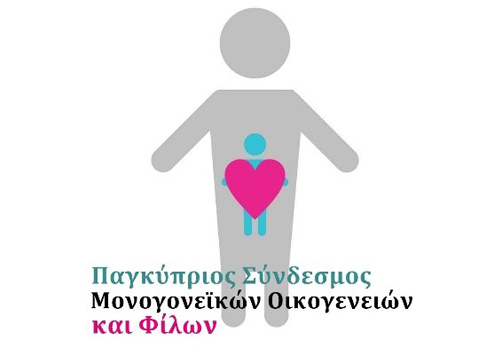
Αντιμετωπίζοντας τη σεξουαλική παρενόχληση στον χώρο εργασίας – Η εμπειρία του έργου ASTRAPI
July 10, 2022
Οικογενειακό Δίκαιο: Ανάγκη ριζικής μεταρρύθμισης για προστασία γυναικών και παιδιών ζητά ο Παγκύπριος Συνδέσμος Μονογονιών
July 11, 2022Biran Mertan
This study examines the position of women and the existing support mechanisms for women as parents in North Cyprus from a feminist perspective. The social structure of the Turkish Cypriot society, like other societies in the world, is constantly and rapidly changing. Turkish Cypriot women are influenced by both oriental and occidental cultures.
Worldwide, one out of every two adult women participates in the labor force, while this rate is calculated as three-quarters for adult men (World Bank, 2020). Approximately 380 thousand people live in North Cyprus. According to the Household Labor Force Survey (TRNC Statistical Institute, 2020) conducted in North Cyprus, the rate of participation of women in the labor force is 40.8%. Women who are not employed, and women who are employed are held equally accountable for household chores and taking care of their children. Despite the increased level of education of Turkish Cypriot women, the rate of women among top level managers is still low but have seen improvements, for instance in 2015 only 28.9% of senior managers were women, this rate in 2021 has increased to 34.2%. Although gender equality expresses the equal and meaningful participation of women and men in all spheres of society, patriarchal understanding imposes the domestic care and childcare on women. Due to the patriarchal, sociocultural roles and responsibilities that society imposes on individuals as women or men, childcare, elderly, disabled and ill people care are predominantly attributed to women. Gender policy debates highlight the importance of access to social care services as the most effective strategy to alleviate time constraints on women's labor supply and to promote women's equal access to labor markets (European Commission-EC, 2015). As is the case in many parts of the world, the issue of unpaid care work is an important indicator of gender inequality for Turkish Cypriot women as well. As domestic care work is culturally perceived attributable to women, women either do not stay in the labor market or choose jobs and training fields where they can reconcile work and family life (Mertan, 2000).
A research conducted by Mertan (2021) on the role of the extended family support, father's unpaid care work, mother's employment status, social ties, cultural values, socioeconomic status, and kinship relations of parents with children in early and pre-school age, on the Turkish Cypriot sample revealed that half of the children (51.6%) of the employed mothers were cared for by their grandmothers during the day at least until the children reached two years of age. The study also observed that fathers have limited involvement in unpaid housework and childcare responsibilities. The percentage of mothers stating that they receive extended family support was 71.9 and 21.7% live in either an amalgam (nuclear family living very close to the extended family, for example in the same building but in separate flats) or an extended family structure. Research findings show that the social environment in North Cyprus supports familial care as a childcare method and the gendered child-rearing role attributed to women continues in the status of grandmothers. However, to date in social policy debates the family needs for the services for the child care, elderly care and rehabilitation centers for disable individuals are not on the agenda.
_________________________________________________________________
References
European Comission, (2015). Joint Employement Repot 2015. 16 Şubat 2021 tarihinde
https://data.consilium.europa.eu/doc/document/ST-7006-2015-INIT/en/pdf adresinden
erişildi.
Mertan, B. (2000). Doğu Akdeniz Üniversitesi’nde kadının konumu: Bir inceleme. Woman
2000, Journal for Woman Studies, EMU-CWS, 1(1) 1-9.
Mertan, B. (2021). Kuzey Kıbrıs’ta Süregelen Cinsiyetlendirilmiş Ebeveynlik - Ongoing
Gendered Parenting in North Cyprus. Journal of folklore & literature, Special
Issue on Women’s Studies. 27 (2), 1-27, 106 Ek, doi:10.22559/folklor.1849.
KKTC İstatistik Kurumu (2019). 2020 Hanehalkı İşgücü anketi Sonuçları. 16 Şubat 2021 tarihinde
http://www.stat.gov.ct.tr/HIA-BULTEN-YIL-7.aspx adresinden erişildi.
World Bank (2020): “World Development Indicators,” 16 Mart 2021 tarihinde http://data.
worldbank.org/data-catalog/world-development-indicators adresinden erişildi.






